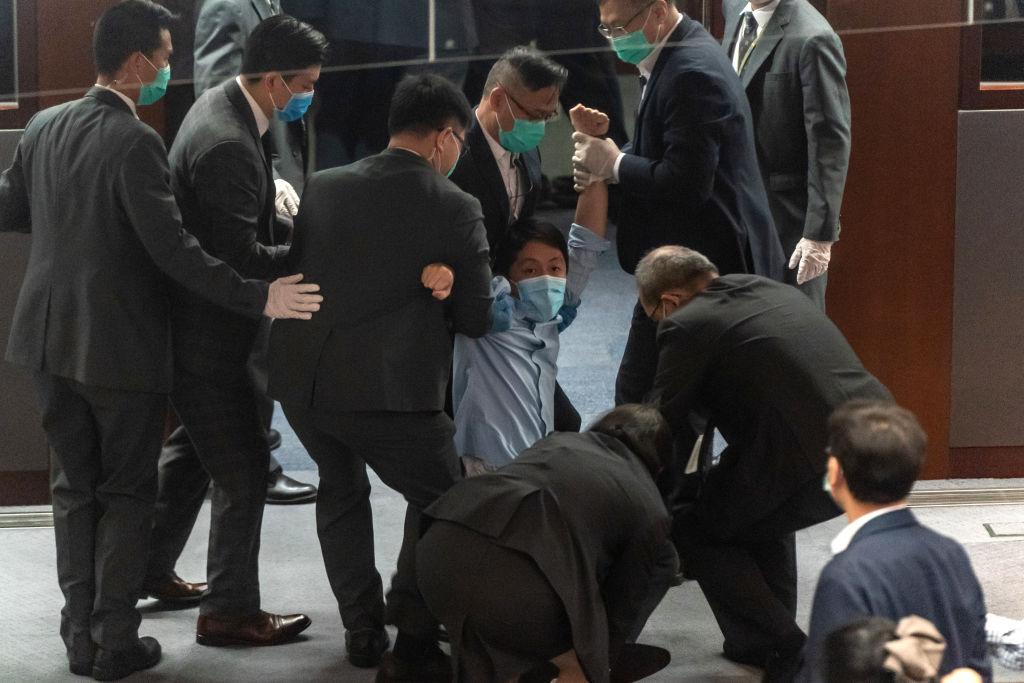Another Hong Kong pro-democracy lawmaker has been arrested and accused of the same charges that police brought against seven opposition politicians a day earlier.
Hong Kong’s Democratic Party announced on its Facebook page on Nov. 2 that Ted Hui, one of its lawmakers in the city’s Legislative Council (LegCo), was arrested while reporting to a local police station in connection with another case.





